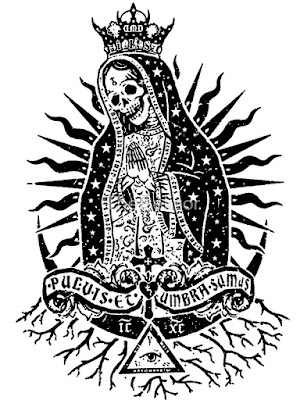There has been a string of terrorist attacks over the past few days starting with the massacre at the Ataturk Airport in Istanbul, followed by the siege in Dacca, Bangladesh in which the attackers horrifically murdered some of their hostages, and then finally a massive truck bomb in a Shiite neighborhood of Baghdad that killed 125 people and counting. The Islamic State claims 2 of these attacks, though the veracity of the Dacca claim is disputed. The still unclaimed attack in Istanbul is widely regarded as the work of Islamic State.
The whole point of terrorist attacks is to frighten people. In terms of advancing anything like military goals (seizing territory and governments), terrorist tactics are wasteful and useless. But, in political terms (influencing public opinion and government policy decisions), terror is a tremendously successful cost-efficient tactic. A public massacre broadcast around the world frightens people, especially with the idea that our own governments cannot completely guarantee our safety from terror, even though terrorist attacks are very rare and their death toll is comparatively low (compared to smoking and auto accidents). In a world where time and chance happen to us all, the terrorist exploits ever present uncertainty.
I would argue that the global retreat from liberal democracy and its cosmopolitan values is at least in part a consequence of terrorism. The fear sown by the terrorist changes habits and customary ways of doing things and thinking about things that we've long taken for granted. For example, throwing away trash in a public bin; outside the USA, many cities have removed public trash cans as possible hiding places for bombs. Terror makes us impatient with the rule of law and with constitutional structures that have served us for centuries. Terror make us suspicious of both strangers and our neighbors. Our fright demands security and expediency in the name of safety (for example, torturing prisoners, a practice that was thought to have been discarded in the West with the destruction of Nazism). Terrorists want to create chaos and fear, and to make us destroy our own social and political values out of sheer fright. And so far, they've succeeded.
By "terror" I mean both domestic and international terrorism without sectarian distinctions. Osama bin Laden and Timothy McVeigh were both terrorists with similar goals to terrify and create chaos.
Terrorism is the most extreme -- and the most successful -- manifestation of the war against liberalism and its cosmopolitan culture. More than protests, elections, and government policy, terrorism really has rolled back the political structures and the culture of liberalism through that most unliberal tactic of mass fear created by random assault. It's hard to imagine a more radical rejection of Enlightenment ideas of social contract and the supremacy of law. More than any right wing think tank, more than any fundamentalist sermon, the fear created by the terrorist makes people seriously rethink the whole structure and culture in which they've always moved and breathed.
Terrorism is a multi-headed Hydra that always grows back a new even more poisonous head every time we cut one off. More often than not, those who would strike back, those who would prepare us by militarizing us, end up playing by the terrorist script and doing their work for them.
Almost all terrorism these days claims a religious or a racist motive (frequently both). It is hard to imagine any god worthy of our worship who would countenance such blatantly evil and nihilistic acts; no Allah, no Adonai, no Jesus, nothing good and holy anywhere would ever claim such acts. I can only think of one possible candidate; the goddess of the Latin American drug trade and the real deity of fundamentalist terrorists despite their claims of pious sectarian allegiance, Santa Muerte, the death goddess who presides over all crime and criminals.


1 comment:
I appreciate your blog for its aesthetics, philosophical and political commentary. However, terrorism (no matter how you define it), is hardly a new phenomena. Even using the most conventional and restrictive use of the term, there were frequent political bombings and political assassinations in the late 19th/early 20th centuries in the USA and even more in Europe. There wasn't a 24 hour cable news cycle then or the internet, and the mass media society and its corrosive effects on our consciousness over the last 100 years, including a general erosion in our attention spans, was still in its infancy. I think this is probably the principal reason for what I see as the irrational response to "terrorism" today as opposed to the past.
Post a Comment